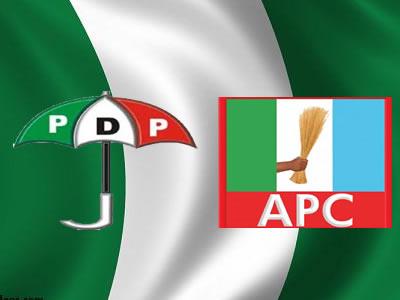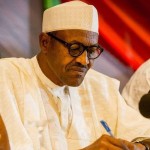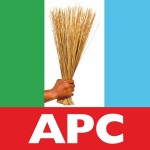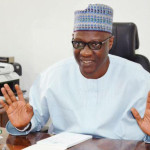OPINION: Politics Without Values, By Owei Lakemfa
Articles/Opinion, Featured, Featured Contributors/Columnists, Latest Headlines Sunday, May 27th, 2018
(AFRICAN EXAMINER) – The Spokesperson of the ruling All Progressives Congress (APC) Mr. Bolaji Abdullahi and that of the main opposition Peoples’ Democratic Party, Mr. Kola Ologbodiyan, last week had a lively debate on television. Both were polite and civil, befitting the Gentlemen of the Press. The debates had little to do with principles, ideologies and programmes; perhaps because there are no fundamental differences. Rather, they centred more on superficial differences such as, in the wake of the violent Ward Congresses of the APC, which party has a history of more violence? Was the invasion and destruction of the Rivers State courts a purely APC affair or was the opposition PDP also involved? There were also debates whether both parties were organically formed or established by different coalitions.
What was clear, was that the parties had no standards so politicians can float freely between them. The debates also reminded me of the lack of values, not only in both parties, but in the general polity of our country. Or better still, that compared to our immediate post-colonial politics, our value system has changed dramatically and negatively. For instance, Chief Obafemi Awolowo was a very intelligent, resourceful and brilliant politician who was Premier of the then Western Region comprising today’s Oyo, Ogun, Osun, Ondo and Ekiti States. He ran perhaps the best government in the country with identifiable principles and clear programmes. He also controlled the enormous resources of the region. Yet at independence in 1960, he decided to leave all these to become the leader of Opposition in the Federal Parliament. This will be unthinkable today; that a Governor who controls the state’s votes, would leave his position to his Deputy Leader to go and be leader of opposition or Minority Leader in the National Assembly. In fact, the ambition of most Senators who had never been governors, is to become governors.
In the pre-Independence elections, the Northern People’s Congress (NPC) won 141 seats in the North and one in the Brass Division, the Action Group (AG) won 73 seats made up of 33 in the Western Region, 25 in the North, 14 in the East and one in the Lagos Crown Colony. In comparison, the National Council of Nigerian Citizens (NCNC) won a total 99 seats made up of 58 in the East, 21 in the West, 18 in the North and 2 in Lagos. It was a Parliamentary system in which the highest political office was the Prime Minister (Now, it is the President) The Action Group proposed an alliance with the NCNC, offering Dr. Nnamdi Azikiwe the post of Prime Minister as both parties with a combined seat of 172 could form government. Azikiwe declined, preferring to go into alliance with the NPC in a government in which he would be the junior partner, and the NPC would provide the Prime Minister. In today’s politics, it would be unthinkable for a politician to decline being President, more so when it would be his for the asking. Today, politicians would offer their limbs to be President of the country even when they have virtually nothing to offer. Politicians would mask their personal ambitions in all sorts of garments, some would even claim they are divinely selected to lead the country. When President Olusegun Obasanjo desperately wanted a second term, he claimed he was waiting on God to tell him whether to run or not, while his praise singers asked Nigerians; “If not Obasanjo, who else?” In some states, some hangers-on would declare that: “There is no vacancy” in the State House when the constitution provides for vacancy to be filled every quadrennial.
Today, it would be considered insane for a politician to win the Presidency and rather than be sworn in, ask his deputy to run the country. But that was practically, what happened in the First Republic when the Leader of the party with majority seats, Sir Ahmadu Bello stayed back in the North as Premier, appointing Alhaji Abubakar Tafawa-Balewa to step in as Prime Minister.
Even in some parts of the world, this is still possible; it is a matter of the underlining principles. For example, in the Fourteenth Malaysian general elections held on May 9, 2018, former Prime Minister, Mahathir Mohammed of the opposition Pakatan Harapan party, defeated the incumbent, Najib Razak of the ruling Barisan National coalition which has been in power since independence in 1957. However, the new Prime Minister sees himself as merely warming the seat for jailed opposition politician, Anwar Ibrahim who is programmed to take over within a year or two to complete Mahthir’s term. Already, Ibrahim has been released from jail under royal pardon as a step towards assuming the highest political office in that country.
Nigerians collectively and irrespective of party affiliation need to return the country’s politics back to a value-oriented one not one in which the populace neither trust the politician nor the government. This loss of confidence and the attendant pessimism, is partly responsible for many voters demand for payment in cash or kind before casting their votes. Conversely, many politicians have no confidence in the electorate believing that all they need do, is dangle some carrots before them like enticing monkeys with bananas.
Under military autocracy, there was so much mistrust and disconnect with the populace, that the autocrats simply awarded themselves pass mark, aware that if the populace were to score them, they might not score up to 10 percent. Unfortunately today, that distrust not only largely remains, but truth has become a casualty. At various levels, many political leaders simply would not accept responsibility; they deny anything and everything even if it were in some cases, clear that all they did, was commit human errors.
We need to return to the past when people had confidence in government and trust that it would protect their interests, and those in government had confidence in the populace. This is also the time for patriots to stand up and be counted; we can be politically active and committed to the emancipation of our people without necessarily being politically partisan or affiliated to any political party. This country belongs to all of us not to any individual, group or party. No patriot remains neutral when the future of the country he loves, is at stake.
Related Posts
Short URL: https://www.africanexaminer.com/?p=44114






















